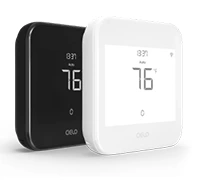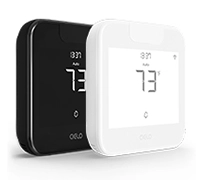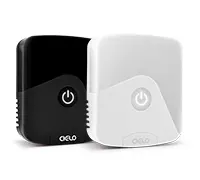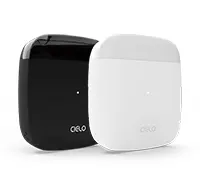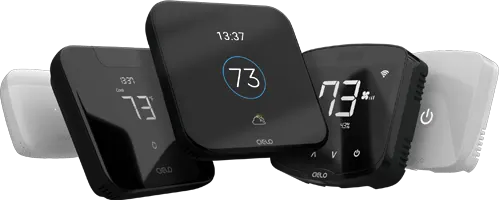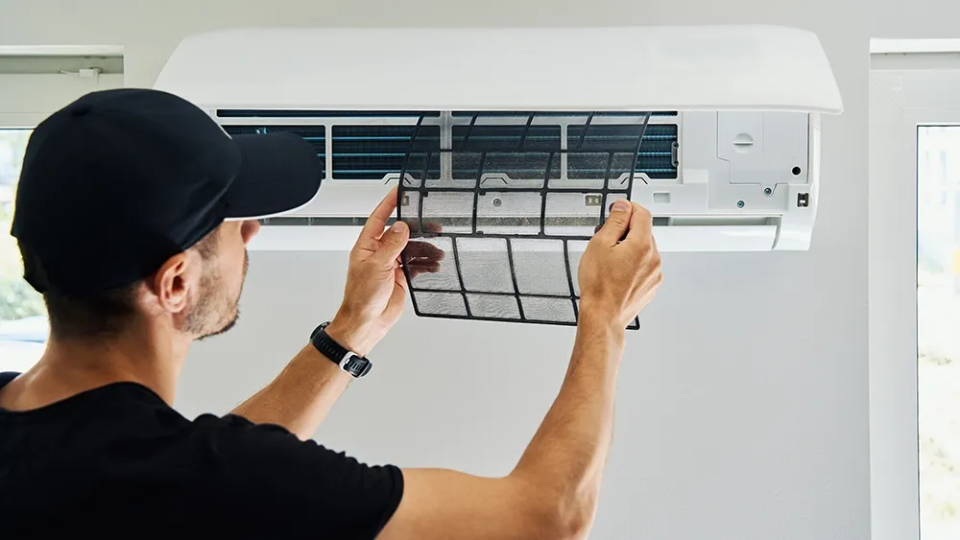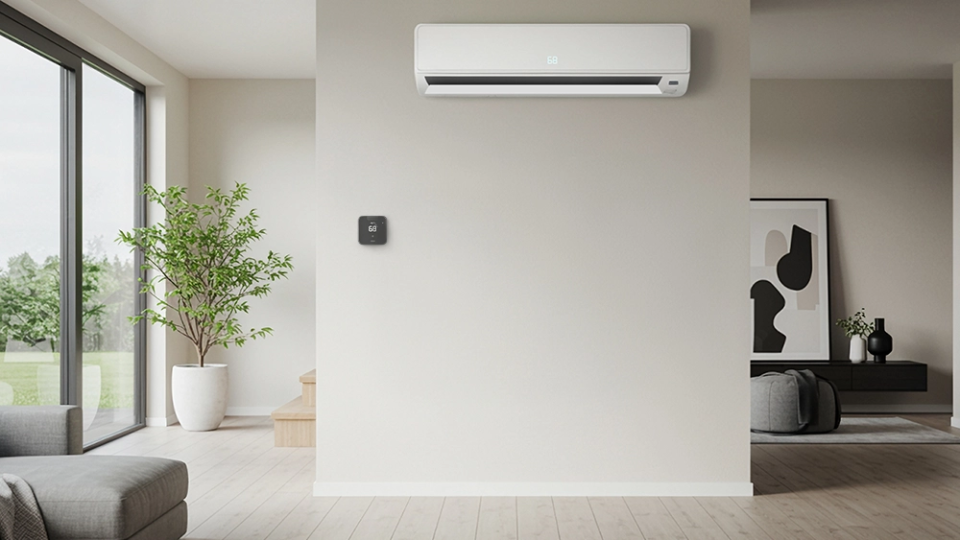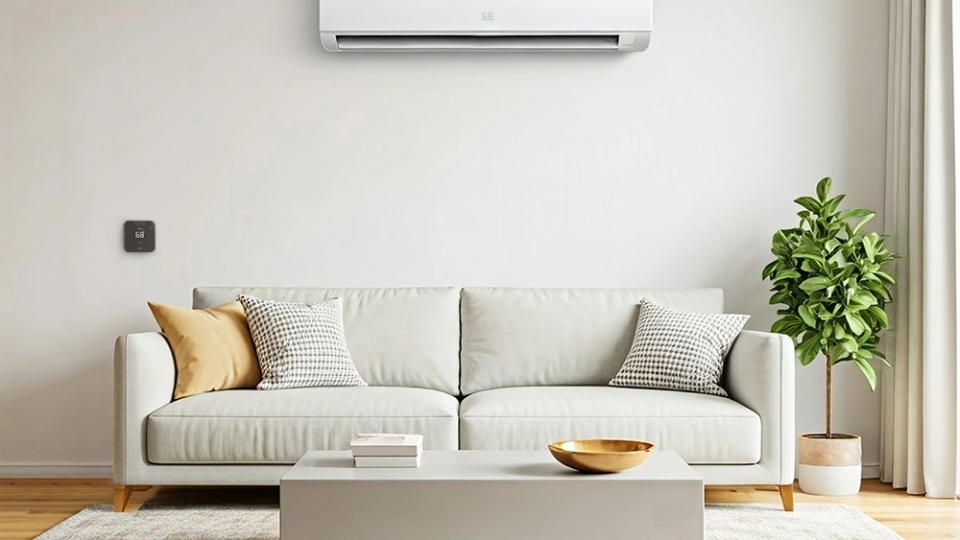
Key Takeaways
- A heat pump efficiently heats and cools by transferring heat, instead of generating it.
- A furnace works by utilizing fuel (oil, gas, or electricity) to generate heat.
- Heat pumps are efficient for moderate climates, while furnaces provide rapid heating in cold climates.
The biggest concern when preparing for the winter season is how to heat your home. A heat pump and furnace are two of the most popular options to beat the chilly season. However, both these home heating systems work quite differently and have their own pros and cons, leaving you confused about which one to choose.
This article draws a comparison of heat pump vs. furnace to help you make the best choice. Before you move on to deciding which one is better, it’s essential to know how heat pumps and furnaces work.
How Does a Heat Pump Work?
A heat pump works by transferring heat instead of producing it. It consists of an outdoor handler and an indoor one connected together by a refrigerant line. The most significant advantage of heat pumps is that they heat and cool your home, allowing you to essentially hit two birds with one stone. In the winter, your heat pump will extract heat from the outdoor air, ground, or water source, depending on the kind of heat pump you have, and transfer it indoors.
In the summer, the process is reversed. Instead, it extracts the heat from the indoor air and expels it outdoors while recirculating cool air back into your home.
The heat pump’s heating efficiency is measured in HSPF (Heating Seasonal Performance Factor). A higher HSPF value indicates a more efficient system.
|
Pros |
Cons |
|
|
|
|
|
|
|
|
There are many different types of heat pumps available on the market; some of the main ones are as follows:
Air-Source Heat Pumps
The most commercially available heat pumps are air-source heat pumps. As the name indicates, they use air as a heat source and a heat sink. They heat areas with moderate climates quite well. There are also cold-climate heat pumps for freezing conditions.
Air-source heat pumps can be further divided into two types: ducted heat pumps and ductless heat pumps. The ductless heat pumps, also known as mini-split heat pumps, deliver the air directly to your room via the indoor handler, eliminating the need for ducts.
Geothermal Heat Pump
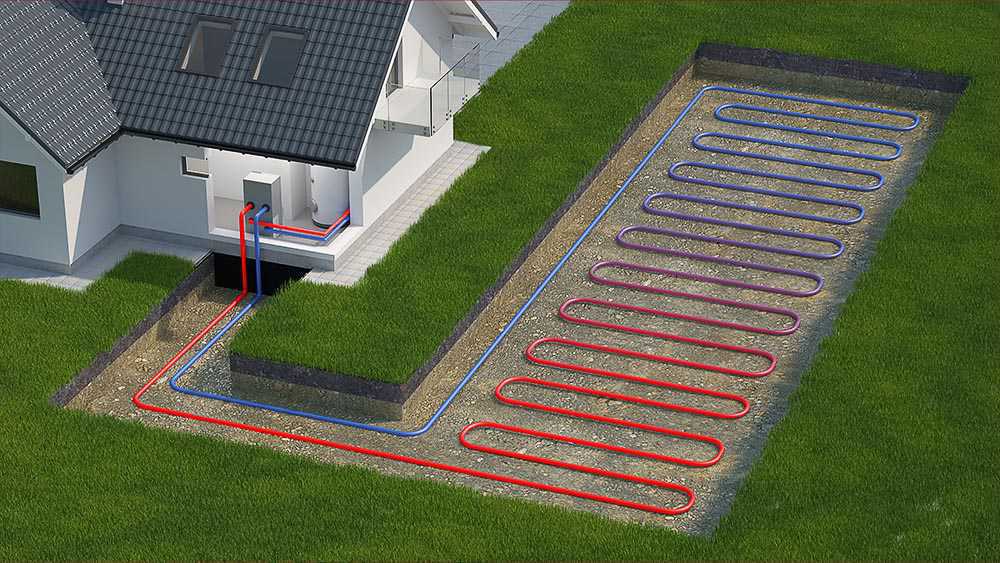
Geothermal heat pumps work the same way as air-to-air heat pumps except for one crucial difference: They are located underground, where the temperature is constant throughout the year. Even when the temperature above ground is below freezing, the underground temperature will be around 40-50 degrees, providing enough warmth for the heat pump to work efficiently.
Geothermal heat pumps provide equally good heating as furnaces and are also more efficient. However, they have incredibly high installation costs, up to $40,000. Since geothermal heating systems are notoriously difficult and expensive to install, compelling homeowners to look for other options.
Water-Source Heat Pump
Water-source heat pumps (WSHPs) efficiently heat and cool homes by using a nearby water body like a lake, pond, or well for heat exchange. Pipes connect the indoor heat pump to the water source, circulating a brine mixture to absorb heat. The heat pump compresses this energy to a usable temperature and distributes it through systems like radiators or underfloor heating.
Absorption Heat Pump
Absorption heat pumps, often referred to as gas-fired heat pumps, are primarily used in industrial or commercial settings but are also suitable for large residential homes over 4,000 square feet. These systems rely on natural gas, propane, solar-heated water, or geothermal energy instead of electricity and use an ammonia-water absorption cycle to efficiently provide heating and cooling.
How Does a Furnace Work?
A furnace is a heating appliance suitable for people living in extremely cold climates. Unlike heat pumps, furnaces work by generating heat. Furnaces typically use fuel, such as gas, propane, or electricity, to heat homes.
The way furnaces work is quite simple. A burner utilizes the fuel such as oil, gas, or electricity to generate heat. The heat exchanger transfers the heat, and the blower circulates the hot air through the ducts, which distribute it throughout your home. There is also a flue that serves as an exhaust for gaseous by-products.
AFUE (Annual Fuel Utilization Efficiency) measures how efficiently a heating system uses fuel. Mid-efficiency units range from 80% to 88%, while high-efficiency models range from 90% to 98.5%. This means that 95-98% of the fuel burned is being utilized, leaving only a small percentage to waste.
|
Pros |
Cons |
|
|
|
|
|
|
|
|
|
|
Gas Furnace
Gas furnaces produce heat by burning natural gas, delivering warm air throughout the home. They come in various sizes and efficiency levels. Compared to electric heat pumps, gas furnaces produce much warmer heat.
Electric Furnace
Electric furnaces, on the other hand, do not use an open flame. They pull air into the system, and then the electric heating elements warm it up. The blowers then send the hot air through the ducts and into your home.
Equip your HVAC system with smart features and achieve the perfect balance between comfort & savings.
Learn more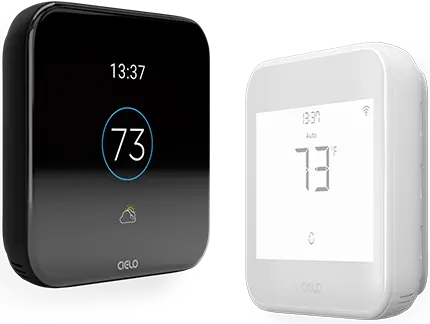
Modulating Furnace
There are also some energy-saving furnaces called modulating furnaces that adjust the amount of gas they burn to reach the target temperature. They run steadily at a lower energy level rather than at full speed and turn on and off repeatedly. Thus, you get the temperature you want but with significant energy savings.
Heat Pump vs. Furnace: How to Decide?
Now that you know quite a bit about furnaces and heat pumps and their different types, you may be wondering which one is best for you. There are several factors to consider when deciding which heating option to choose.
Cost
The cost of installing a heat pump or furnace varies based on several factors, such as your home layout and insulation, local climate, the brand and model of the equipment, and any rebates or incentive programs available.
Upfront Cost
- Heat Pumps: When comparing heat pump vs. furnace cost, heat pumps cost more. However, with the help of tax credits and rebates, you may be able to install them at a lower cost than initially anticipated. You will have to pay between $4,247 – $7,929 for a heat pump.
|
Type |
Unit Cost |
|
Air Source |
$4,500–$8,000 |
|
Geothermal |
$6,000–$20,000 |
|
Mini-Split |
$1,300–$8,000 |
|
Hybrid |
$2,500–$10,000 |
- Furnaces: They cost between $2,824 – $6,882 to install.
|
Furnace Type |
Average Cost Installed |
|
Electric |
$2,000–$7,000 |
|
Natural gas |
$3,800–$10,000 |
|
Oil |
$6,750–$10,000 |
|
Propane |
$3,700–$14,200 |
Note: Homeowners can take advantage of federal incentives to save on new heating systems. Under the Inflation Reduction Act, tax rebates provide up to 30% off the cost of high-efficiency heat pumps and furnaces. Furthermore, if you have a smart thermostat eligible for a rebate, you can pair it with your heating system and enjoy further savings.
Operating Costs
Heat pumps are typically more cost-effective due to their efficiency. Exact operating costs depend on the unit’s efficiency, as well as local gas or electricity prices.
Ease of Installation
Installing both heat pumps and furnaces is a job best left to professionals.
- Heat Pumps: Heat pump installation involves managing refrigerants and mishandling that can expose you to harmful gases, potentially causing severe health issues like lung or brain damage. Certain mini-split heat pumps are DIY-friendly, with kits allowing homeowners to install them without professional help. These units combine air conditioning and heating, are mounted on walls, and don’t require ductwork.
- Furnaces: Furnace installation involves working with gas, oil, or electrical components. should always be handled by a professional to ensure the fuel supply, exhaust, and system are safely and correctly installed.
Efficiency
- Heat Pumps: When it comes to heat pump vs furnace efficiency, heat pumps are significantly more energy-efficient because they transfer heat from one place to another. It can lower your energy usage by 75% compared to furnaces. An HSFP of up to 13 indicates higher efficiency. However, the efficiency of a heat pump system is also dependent on your local climate. “The problem with conventional heat pumps is that they may not function well in really cold temperatures. But you don’t have to worry; cold-climate heat pumps are revolutionary. These advanced models can withstand temperatures as low as -20F with ease,” says Ben Green, CEO of Green Leaf Air, a company specializing in heating and AC installation, service, and repair.
- Furnaces: Gas and oil furnaces are efficient in extremely cold climates, but they carry some safety risks because they involve using and burning flammable fuels. High-efficiency models can reach AFUE ratings as high as 98.5%. Electric furnaces are the least effective type as they utilize a lot of energy to heat up your home.
Appearance
- Heat Pumps: A ducted air-source heat pump has a large unit that is installed outside the home. It may clash with your outdoor decor, but there are ways you can hide the outdoor unit. Mini-split heat pumps have a noticeable indoor wall unit that can also be an eyesore. Here’s how you can camouflage your mini-split.
- Furnaces: In contrast, furnaces are discreet. They are typically installed in basements, attics, or utility rooms, keeping them out of sight.
Space Requirements
- Heat Pumps: The largest part of a heat pump, the compressor, is located outdoors. The heat pump’s indoor unit is usually relatively small and can be mounted high up on the wall.
- Furnaces: They take up a lot of space. If you have a smaller house, you likely value every square inch you have. In addition, furnaces are typically installed indoors, and building codes require at least a 30-inch margin on all sides for safety purposes.
Climate Considerations
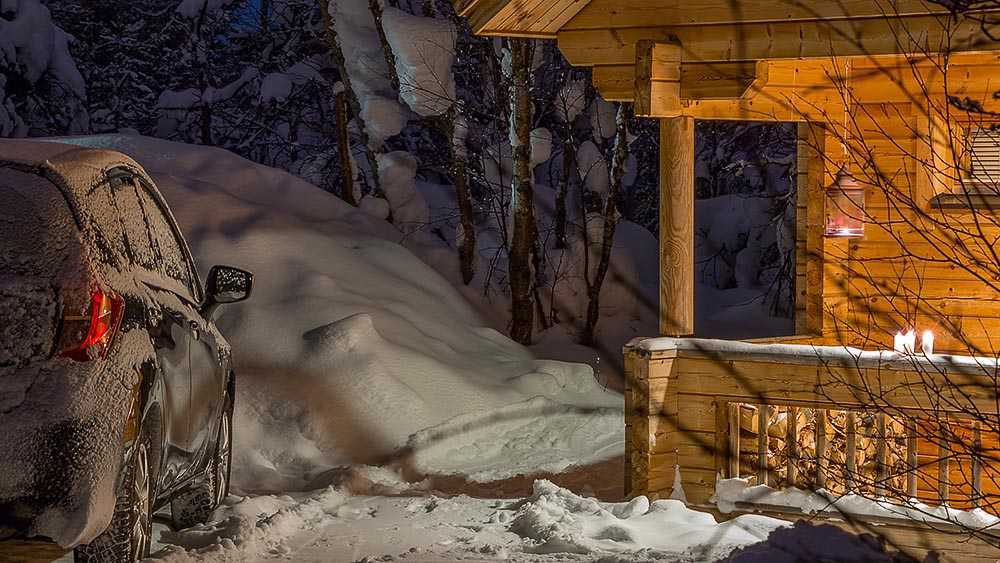
- Heat Pumps: If you live in a moderate climate with mild winters, a heat pump is perfect for you. Plus, they offer the advantage of functioning as both a heating and cooling system, providing year-round comfort.
- Furnaces: However, if you live in an area where winter temperatures are frequently below freezing point, a furnace is the best option for achieving your ideal temperature. Furnaces generally work better in colder climates because they don’t depend on the outdoor temperature to heat your home.
Safety Considerations
- Heat Pumps: Since heat pumps transfer heat instead of generating it, they are more eco-friendly but do pose the risk of carbon monoxide buildup.
- Furnaces: Though gas furnaces have improved greatly in efficiency in recent years, they still release carbon monoxide into the air. If the exhaust flue is blocked, carbon monoxide can build up in your home. If you have a gas furnace, you should invest in a good carbon monoxide detector and regularly clean your exhaust flue to ensure it is free from blockages.
Lifespan
- Heat Pumps: They have an average lifespan of 10-15 years. If you notice signs like increased wear and tear, uneven heating or cooling, and the general need for more repairs, then it is likely your heat pump is reaching the end of its life.
- Furnaces: Since furnaces run less than half the year, they typically require less maintenance and have a longer lifespan. If well-maintained, furnaces can last 20 years or more. Gas furnaces can even go up to 30 years. At the end of its life, you’ll notice there are increased rattling sounds, inconsistent heating, and a rise in carbon monoxide levels.
Maintenance
- Heat Pumps: When comparing a gas furnace vs. heat pump, you will usually need to be more hands-on when maintaining your heat pump. If you are running it all year, you will need to have it professionally inspected twice a year, along with focusing on DIY maintenance tasks. You will need to inspect and clean the filters on a routine basis, clear away ice buildups on the outdoor unit, and clean your coils.
- Furnaces: On the other hand, furnace maintenance is simple as it only runs in the winter season. It involves regular filter changes and occasional cleaning inside the unit. Wiping the flame sensor with sandpaper before each heating season helps ensure efficient operation.
Rapid Home Heating
- Heat Pumps: On the other hand, heat pumps warm up your home more gradually, and the atmosphere is less hot than that maintained by a furnace.
- Furnaces: These systems raise the temperature rapidly and provide warm and toasty air. Compared to heat pumps, furnaces remove humidity from the air, leading to drier skin in winter.
Resale Value
- Heat Pumps: Heat pumps often appeal to buyers due to their dual heating and cooling capabilities and energy efficiency, potentially boosting a home’s resale value. However, a simple air-source heat pump will be less attractive to buyers in cold climates.
- Furnaces: In colder climates, a well-maintained, high-efficiency furnace adds more value, as heat pumps can struggle to provide consistent warmth in extreme cold. They are less appealing in mild climates since they aren’t used as frequently and don’t offer the added benefit of cooling.
Sustainability
According to Green, “Heat pumps are the best option if you are looking to switch to an eco-friendly option. Because they do not directly use fossil fuels, their carbon emissions are reduced. Conversely, furnaces consume oil, propane, or natural gas, all of which release greenhouse gases.”
Noise Levels
- Heat Pumps: They are noisier than furnaces. Heat pumps frequently make clunking noises when the compressor powers up or down.
- Furnaces: On the other hand, furnaces are located away from the living space, usually in a basement, and you cannot hear them.
Take Away
When deciding between a heat pump and a furnace, consider your climate conditions, energy costs, and heating needs. Heat pumps excel in energy efficiency and provide both heating and cooling, making them ideal for milder climates. Furnaces, however, are more effective in extremely cold regions, delivering powerful, consistent heat. Each option has its benefits, so evaluating your priorities and consulting a professional can help you choose the best solution for your home.
